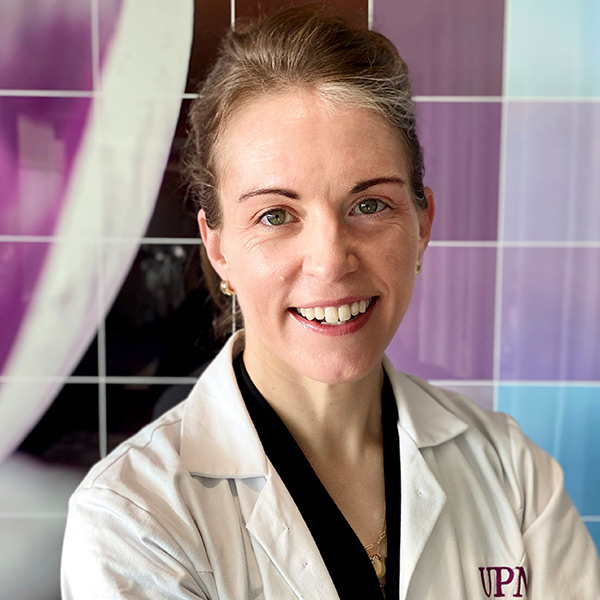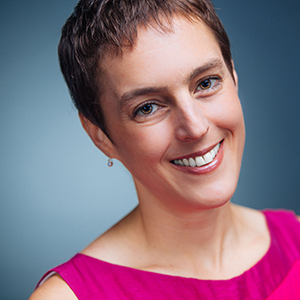Interview With Kathryn L. Berlacher, MD, FACC

FEATURE | Kathryn L. Berlacher, MD, FACC, is a cardiologist at the University of Pittsburgh Medical Center and the new ACC Pennsylvania Chapter governor.
In the following interview, Berlacher shares her goals for the coming term, the importance of mentorship and advice for Fellows in Training (FITs) looking to get more involved with the College.
How did you originally get involved in the ACC and what opportunities have come to you through your involvement?
I first got involved with the ACC at the national level during the last few months of my fellowship and the very beginning of my faculty time. I knew that I wanted to be a program director and was finishing my master's degree in medical education.
I attended one of the national ACC meetings and approached people who were talking about the educational in-training exams for fellows. After that, I was placed on a variety of committees and work groups. I had not been involved at the state level of the ACC until the past couple of years.
People at my own institution knew how heavily involved I was at the national level, and they asked if I could help at the state level. Knowing how strongly I felt about education and diversity/inclusion, and that these were two main tenets of ACC's agenda for the next 5 – 10 years, they thought I fit the role.
What are your goals for the coming term?
My first goal is to ensure that we advance education, specifically for FITs but also for members at all levels. The way that we deliver education is changing, so we need to consider how our learners (physicians, trainees and advanced practice providers) access cardiology knowledge and how we interface with them as a College.
While the ACC has done a great job of advancing education and making it more interactive and engaging, the local and regional offerings are not yet quite as advanced. My goal is for us to offer truly educational experiences and more innovative learning.
My second goal is to ensure that we do everything we possibly can to encourage diversity and inclusion within our field and workforce. That means not only getting fellows and residents interested but also putting together programs that reach out to students in elementary schools, high schools and colleges.
We need to attract people who have not traditionally joined the cardiology workforce, such as women and minorities, and encourage them to think about cardiology as a possible career choice at an early age. A career in cardiology is a long process that often starts well before medical school.
Women now make up about half of all medical students in the U.S., and yet they are grossly underrepresented in cardiology, including leadership roles. What can we as individuals and as a professional society do to change this?

The ACC Task Force on Diversity and Inclusion is already doing a lot of things, but we need a multifaceted approach.
For one, we need to make sure that there are visible leaders that look like the people we want to attract. There must be women and minorities in highly visible positions so that anyone watching can say, "I see myself in that person."
We also have to be honest about our culture and the subtleties within the culture of cardiology that trainees are sensitive to in order to create an inclusive workforce.
What suggestions do you have for increasing FIT involvement in the ACC?
FITs have a core, front and central role. When I was in training, I did not know that a lot of faculty at my institution were involved at the ACC. My goal has been to make sure my fellows know that the ACC is an amazing society.
It feels like a home to me, and there are a ton of resources. All you have to do is reach out and, at some point, people will ask you to sit on a committee or help with a task. For the past five years, all of my fellows have known that I am the person to come to for anything related to the ACC.
I want them to have that access. The ACC helped me feel comfortable in my career and find a place that invigorated and stimulated me beyond the walls of my institution. I want to give that to them. From a fellowship standpoint, there is so much creativity that takes place at that stage.
I believe that the future of cardiology is already happening at the fellowship level right now. If we let people run with the ideas and careers that they want, we will be better in the long run and realize our goals faster.
The integration of fellows into teaching will get us to a much better place. They should be allowed to lead, move things forward and play a primary role.
Who has inspired you along your journey and how has mentorship affected your career?
One of the core principles to being a good leader is having a good mentor. I have a mentoring team. The vice dean of education, Melissa McNeil, MD, MPH, inspired me to pursue formal training in education.
My current chief, Joon S. Lee, MD, FACC, is a master leader – I cannot learn enough from him in terms of his communication skills, clarity of vision, and how he treats and values members of the team. My prior program director, Michael A. Mathier, MD, FACC, has sponsored and coached me on specific projects and various career goals.
Lastly, my father has been my lifelong mentor. I am a third-generation cardiologist and my father and grandfather were in practice together. For many years, at all stages, he has been a mentor and a cheerleader, helping me navigate a career in the most rewarding field of medicine: cardiology.
